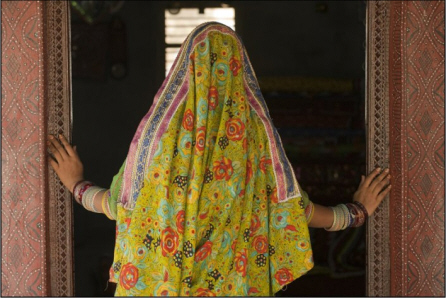International Resource Centre
Historical Overview

Studies of the phenomenon of ‘honour’-based violence are currently limited. Where the slaying of women and men with the justification of family ‘honour’ is a collective and even communal enterprise, and the acts of the dead are considered to have brought shame to the family, there is a huge motivation for the family and community to cover up murders. Thus victims are erased from history and the existence and prevalence of honour-based violence in any particular society is difficult to assess. A historical survey suggests that violence against women, which would now be considered as ‘honour’-based violence has occurred in many societies and in many historical periods.
Laws, which appear to promote violence against women for the expression of sexual autonomy, are notable in Assyrian law codes dating back to 6000 BCE, and the codes of Hammurabi. Within the Bible, in Numbers 25:6-19, the figure of Phineas slays both a man and a woman in the temple for marrying across racial boundaries, which ends a plague and guarantees priesthood to his lineage. Guru Gobind Singh, a central figure in the Sikhi religion called for the rejection of ‘honour’ killers
“There is a huge motivation for the family and community to cover up murders”
from the community, stating that ‘whosoever takes food from the slayers of daughters, shall die unabsolved’; despite his prohibition, ‘honour’ killings continue to be a serious issue within contemporary India, with Sikh families common perpetrators. Under Roman law, fathers had absolute power of life or death over all members of their families; males who did not take action against female relatives who were considered to have violated the sexual code were persecuted by their peers. In medieval Albania, the legal code known as the Kanun of Lekë Dukagjini allowed for the killing of women believed to have committed adultery in terms of blood revenge, which still has its effects on contemporary Albania. During John Calvin’s control over Geneva, adulterous women were drowned in the river Rhone. Within Ching dynasty China, fathers and husbands had the right to kill daughters deemed to have dishonoured them. Abuses of women that relate to a notion of ‘honour’, such as the exchange of girls as compensation for crimes of the male relatives, and levirate, where a widow is obliged to marry her husband’s brother occur across sub-Saharan Africa. ‘Honour’ killings have been recorded in the Southern Mediterranean, including Greece, Spain and Italy right up to the modern era. A law allowing for murder justified by ‘honour’ remained part of the Italian penal code right up to 1980 when it was removed from the statute books due to feminist campaigning. It is unknown how many societies outside the areas commonly associated with ‘honour’-based violence enact the collective murder and abuse of women deemed to have offended traditional sexual morality, yet individual cases have been noted in places as diverse as the Philippines and Western Samoa.
“HBV has occurred within many different societies, and many different periods in history, within male-dominated societies where there is an insistence upon the control of female autonomy.”While the history of HBV is sketchy and will doubtless be filled in as historians, sociologists and students of women’s history conduct further analysis, the clear point is that there is no single ethnic, cultural or religious indicator of HBV. Rather that HBV has occurred within many different societies, and many different periods in history, within male-dominated societies where there is an insistence upon the control of female autonomy. HBV is ultimately connected to the patriarchal organisation of the family rather than to any specific culture. While Islam is held to be causally related to ‘honour’ killings, due to the harsh and inhumane punishments against sexual ‘immorality’ enacted in Islamic states, these do not license vigilantism and have, at least in theory, evidentiary protocols. This is not to suggest that there is no link whatsoever, as many interpretations of religion, and articulations of family law, tend to exhibit and encourage male dominance within families and negative attitudes to female sexual autonomy, creating an environment in which violence against women may be occasioned and justified.
While the history of HBV shows that this is a deep-rooted phenomenon, as old as civilisation itself, it also provides some grounds for optimism: if social change has led to the eradication of honour-based violence in certain parts of the world, then the global eradication of honour crimes remains a possibility.
